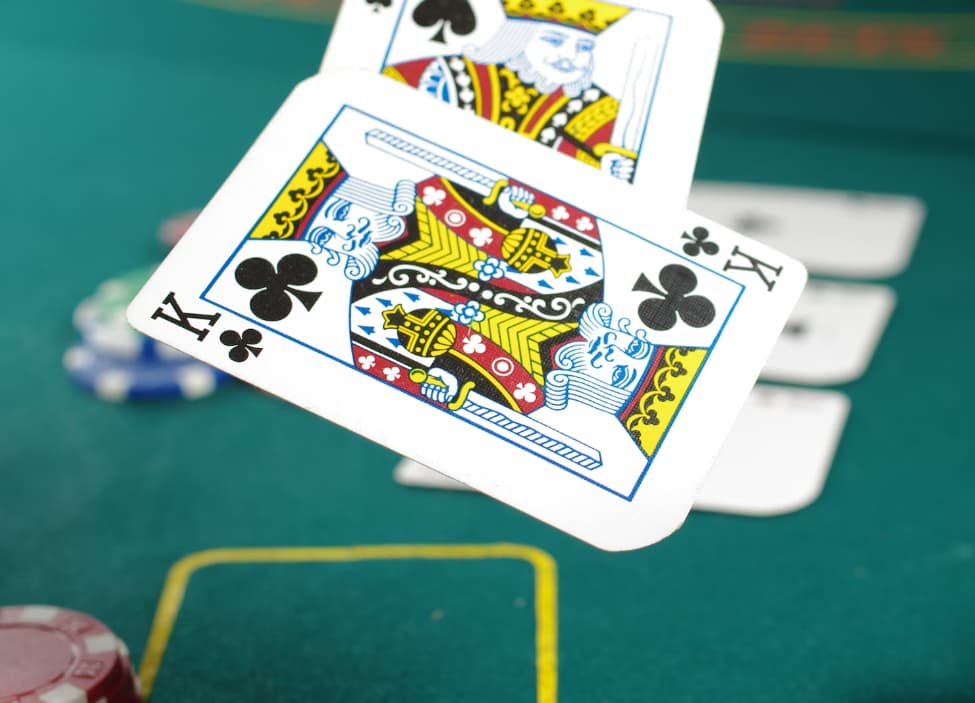In 2024, the fusion of cryptocurrencies with online gaming has transformed the landscape of digital entertainment. This article delves into the thriving world of crypto table games, spotlighting favorites like Baccarat, Video Poker, Blackjack, and Roulette. We’ll explore how these classic games have adapted to the crypto era, gaining newfound popularity and introducing innovative gaming experiences.
The Rise of Crypto in Online Gaming

Cryptocurrencies have revolutionized online gaming, offering unmatched security, anonymity, and speed. The global online gambling market is rapidly adopting crypto, driven by its decentralized nature and the prospect of reduced transaction fees. This shift is reshaping how players engage with online games, making crypto transactions an integral part of the gaming experience.
Overview of Popular Table Games
Table games have been the cornerstone of the casino experience, and their transition to the online and crypto realms has broadened their appeal. Nowadays, more and more players prefer to visit live dealer bitcoin casinos instead of classic ones. Baccarat, with its noble roots, offers a taste of high-stakes betting. Video Poker, blending slot machine excitement with poker strategy, appeals to a wide range of players. Blackjack, balancing luck with skill, is a universal favorite. And Roulette, embodying casino glamour, provides a quick thrill with each spin. In the crypto world, these games have found new life with enhanced features and digital adaptability.
Baccarat in the Crypto Era
In the world of crypto casinos, Baccarat has evolved to include several exciting variants, each offering a unique twist on the traditional game. Here’s a closer look at the most popular types of Baccarat available in crypto gaming:
- Punto Banco. Often considered the standard version of Baccarat, Punto Banco is a game of chance where players bet on either the player’s hand (Punto), the banker’s hand (Banco), or a tie. The objective is to bet on the hand that will total or come closest to nine. In the crypto version, bets are placed using digital currencies, adding a modern flair to this classic.
- Chemin de Fer. This variant, popular in Europe, is more interactive as players take turns being the banker and can decide whether to draw a third card. The game becomes a competition between individual players, rather than solely against the house. In crypto Chemin de Fer, the use of cryptocurrencies can enhance the betting process, making it more secure and swift.
- Baccarat Banque. Similar to Chemin de Fer, in Baccarat Banque, one player is designated as the banker for the duration of the game. Other players challenge the banker, and like in Chemin de Fer, players can decide whether to draw a third card. The integration of cryptocurrencies in Baccarat Banque offers an added layer of excitement and a modern touch to the game.
- Mini Baccarat. This is a faster-paced, lower-stakes version of the game, often preferred by casual players. The rules are similar to Punto Banco, but the game is played on a smaller table, accommodating fewer players. Crypto Mini Baccarat is particularly popular in online casinos, as it allows for quick, secure transactions with cryptocurrencies.
- Speed Baccarat. As the name suggests, Speed Baccarat is a rapid version of the game where each round lasts just a few seconds. This variant is perfect for players who prefer a fast-paced gaming experience. In the crypto version, the quick pace is complemented by the efficiency of cryptocurrency transactions.
Each of these variants brings a unique flavor to the classic game of Baccarat, making it appealing to a wide range of players in the crypto gaming world.
Crypto Blackjack Games
Blackjack, a quintessential casino game, has found a vibrant new life in crypto casinos, with various adaptations adding to its classic allure. Here’s a breakdown of the most popular Blackjack variants available in the realm of crypto gaming:
- Classic Blackjack. This is the traditional form of Blackjack, where the goal is to beat the dealer by having a hand total closer to 21 without going over. In its crypto version, players can place bets in digital currencies like Bitcoin, adding a layer of modernity to this timeless game.
- European Blackjack. Slightly different from the classic version, European Blackjack typically involves two decks and the dealer does not check for blackjack at the start of the game. The crypto adaptation maintains these rules, offering a unique twist and the added security and speed of cryptocurrency transactions.
- Spanish 21. This variant offers a significant departure, as all the 10s are removed from the deck, creating a unique challenge. Spanish 21 often has special payouts for certain hands and allows late surrenders. In its crypto form, this game combines these intriguing rule changes with the efficiency of cryptocurrency transactions.
- Blackjack Switch. In this innovative version, players are dealt two hands and have the option to switch the second cards of each hand. This adds a strategic element to the game. The crypto adaptation enhances Blackjack Switch with the convenience of digital currency betting.
- Multi-Hand Blackjack. Allowing players to play multiple hands at once, this variant increases the excitement and potential winnings. The crypto version of Multi-Hand Blackjack lets players manage several hands efficiently with their digital wallets, making for a dynamic gaming experience.
Each of these Blackjack variants offers a unique experience, and the integration of cryptocurrencies adds a modern touch, appealing to both traditional players and those seeking new, innovative ways to game online.

Crypto and Bitcoin Roulette Games
Roulette, with its iconic spinning wheel, has seamlessly transitioned into the realm of crypto gaming. This classic game has been diversified into several engaging variants, each offering unique features and betting options. Here’s a look at the most popular Roulette versions available in crypto casinos:
- European Roulette. Known for its single-zero wheel, European Roulette offers better odds to players compared to its American counterpart. In the crypto version, bets are placed using digital currencies, which adds a layer of speed and security to the betting process.
- American Roulette. This variant features a wheel with both a zero and a double zero, increasing the house edge. The excitement of American Roulette is enhanced in crypto casinos by the swift and secure nature of cryptocurrency transactions.
- French Roulette. Similar to European Roulette but with two key rules – ‘La Partage’ and ‘En Prison’ – that offer players a chance to recover their bets under certain conditions. The integration of cryptocurrencies in French Roulette offers an added dimension of modernity to this player-friendly game.
- Multi-Wheel Roulette. An innovative online variant where players can bet on the outcomes of multiple wheels simultaneously. In its crypto adaptation, Multi-Wheel Roulette becomes even more thrilling, allowing players to place diverse bets across several wheels using cryptocurrencies.
- Immersive Roulette. A visually enhanced version of live dealer Roulette, Immersive Roulette uses multiple camera angles to create a dynamic viewing experience. The integration of cryptocurrencies in this variant brings an additional layer of excitement, marrying cutting-edge technology with the convenience of digital transactions.
Each of these Roulette variants offers a unique spin on the classic game, and the incorporation of cryptocurrencies adds a contemporary edge, appealing to both traditional enthusiasts and players who embrace the new possibilities of digital gaming.

Future Trends: What’s Next for Crypto Table Games?
The horizon for crypto table games is replete with exciting possibilities and cutting-edge innovations. As we look ahead, several key trends are poised to redefine the landscape of online gambling:
- Blockchain Integration. Beyond just cryptocurrency transactions, blockchain technology is set to enhance game integrity and transparency. This could mean incorruptible game logs and verifiable fairness, providing a new level of trust and security in online gaming.
- Virtual Reality (VR) Experiences. VR technology is on the cusp of transforming online casinos into immersive 3D environments. Players could soon be walking through virtually real casinos, interacting with other players and live dealers in real-time, all from the comfort of their homes.
- Augmented Reality (AR) Gaming. AR could bring a new dimension to online table games, overlaying digital information onto the physical world. Imagine playing a game of poker where the cards and chips are virtual, but the table and your opponents are in your real-world environment.
- Artificial Intelligence (AI) for Personalized Gaming. AI algorithms could tailor gaming experiences to individual preferences, learning from players’ behavior to recommend games, bets, and strategies. This personalization would make gaming more engaging and addictive.
- Smart Contracts for Automated Payouts. Utilizing smart contracts, crypto casinos could automate payouts based on game outcomes, eliminating the need for manual processing and reducing the potential for errors or fraud.
Conclusion
The realm of crypto table games is richly diverse, offering a myriad of choices to cater to every type of player. As we venture into the future, these games are not only pioneering new frontiers in digital entertainment but are also reshaping the narrative of gaming history. With each technological advancement, the world of online gaming becomes more enthralling, secure, and accessible, promising a future where the virtual and real merge in the arena of gambling and play.